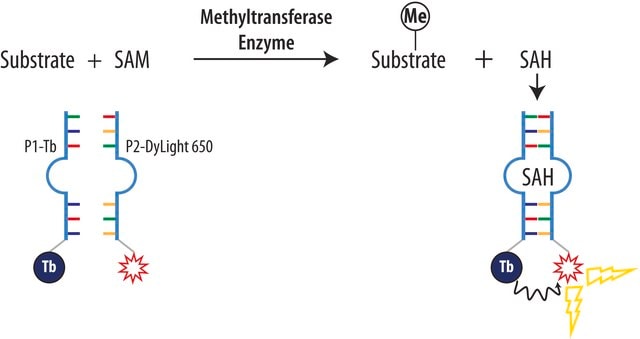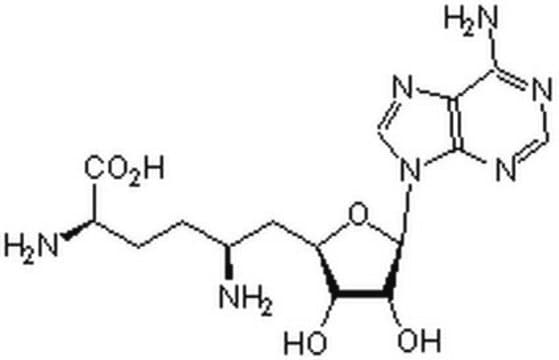A7007
S-(5′-Adenosyl)-L-methionine chloride dihydrochloride
≥75%
Synonym(s):
SAM, Active methionine, AdoMet, SAM chloride dihydrochloride
About This Item
Recommended Products
Quality Level
Assay
≥75%
form
powder
color
white to off-white
solubility
H2O: 100 mg/mL
application(s)
cell analysis
shipped in
dry ice
storage temp.
−20°C
SMILES string
Cl.Cl.[Cl-].C[S+](CC[C@H](N)C(O)=O)C[C@H]1O[C@H]([C@H](O)[C@@H]1O)n2cnc3c(N)ncnc23
InChI
1S/C15H22N6O5S.3ClH/c1-27(3-2-7(16)15(24)25)4-8-10(22)11(23)14(26-8)21-6-20-9-12(17)18-5-19-13(9)21;;;/h5-8,10-11,14,22-23H,2-4,16H2,1H3,(H2-,17,18,19,24,25);3*1H/t7-,8+,10+,11+,14+,27?;;;/m0.../s1
InChI key
KBAFOJZCBYWKPU-XQVUROGGSA-N
Looking for similar products? Visit Product Comparison Guide
Related Categories
General description
Application
Biochem/physiol Actions
Caution
Analysis Note
Storage Class Code
11 - Combustible Solids
WGK
WGK 3
Flash Point(F)
Not applicable
Flash Point(C)
Not applicable
Certificates of Analysis (COA)
Search for Certificates of Analysis (COA) by entering the products Lot/Batch Number. Lot and Batch Numbers can be found on a product’s label following the words ‘Lot’ or ‘Batch’.
Already Own This Product?
Find documentation for the products that you have recently purchased in the Document Library.
Customers Also Viewed
Articles
Understand how mRNA vaccines induce immunity. and read how synthetic mRNA is prepared for vaccine immunogens and other biopharmaceuticals. Find reagents for synthesis of mRNA.
Our team of scientists has experience in all areas of research including Life Science, Material Science, Chemical Synthesis, Chromatography, Analytical and many others.
Contact Technical Service











